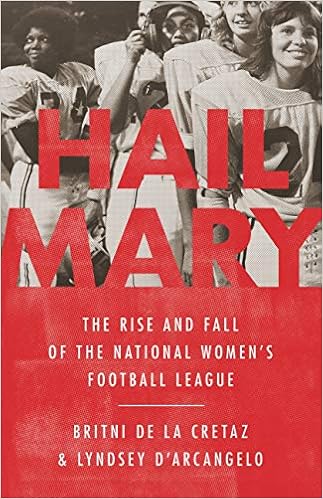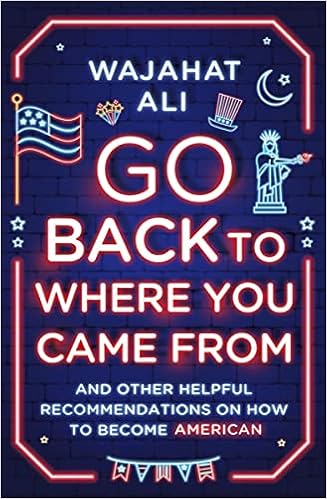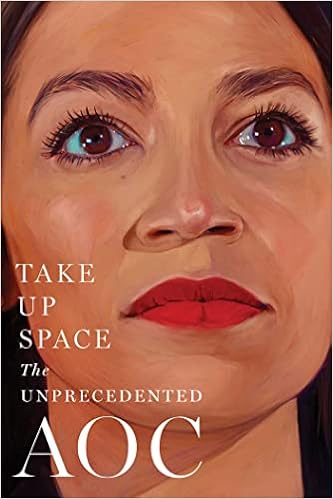Welcome to the University of Iowa Libraries’ virtual New Book Shelf. Here we will present new titles for you to browse and check out. Titles listed here will be monographs published in the current year. If you see a title you would like to borrow, please click the link below the item and sign in with your Hawk ID and Password to request a loan.
The Deeper the Roots: A Memoir of Hope and Home

The making of a visionary political leader―and a blueprint for a more equitable country
“Don’t tell nobody our business,” Michael Tubbs’s mother often told him growing up. For Michael, that meant a lot of things: don’t tell anyone about the day-to-day struggle of being Black and broke in Stockton, CA. Don’t tell anyone the pain of having a father incarcerated for 25 years to life. Don’t tell anyone about living two lives, the brainy bookworm and the kid with the newest Jordans. And also don’t tell anyone about the particular joys of growing up with three “moms”―a Nana who never let him miss church, an Auntie who’d take him to the library any time, and a mother, “She-Daddy”, who schooled him in the wisdom of hip-hop and taught him never to take no for an answer.
So for a long time Michael didn’t tell anyone his story, but as he went on to a scholarship at Stanford and an internship in the Obama White House, he began to realize the power of his experience, the need for his perspective in the halls of power. By the time he returned to Stockton to become, in 2016 at age 26, its first Black mayor and the youngest-ever mayor of a major American city, he knew his story meant something.
The Deeper the Roots is a memoir astonishing in its candor, voice, and clarity of vision. Tubbs shares with us the city that raised him, his family of badass women, his life-changing encounters with Oprah Winfrey and Barack Obama, the challenges of governing in the 21st century and everything in between―en route to unveiling his compelling vision for America rooted in his experiences in his hometown.
https://search.lib.uiowa.edu/permalink/f/9i2ftm/01IOWA_ALMA21842751130002771
What Are the Chances?: Why We Believe in Luck

Most of us, no matter how rational we think we are, have a lucky charm, a good-luck ritual, or some other custom we follow in the hope that it will lead to a good result. Is the idea of luckiness just a way in which we try to impose order on chaos? Do we live in a world of flukes and coincidences, good and bad breaks, with outcomes as random as a roll of the dice—or can our beliefs help change our luck?
What Are the Chances? reveals how psychology and neuroscience explain the significance of the idea of luck. Barbara Blatchley explores how people react to random events in a range of circumstances, examining the evidence that the belief in luck helps us cope with a lack of control. She tells the stories of lucky and unlucky people—who won the lottery multiple times, survived seven brushes with death, or found an apparently cursed Neanderthal mummy—as well as the accidental discoveries that fundamentally changed what we know about the brain. Blatchley considers our frequent misunderstanding of randomness, the history of luckiness in different cultures and religions, the surprising benefits of magical thinking, and many other topics. Offering a new view of how the brain handles the unexpected, What Are the Chances? shows why an arguably irrational belief can—fingers crossed—help us as we struggle with an unpredictable world
https://search.lib.uiowa.edu/permalink/f/9i2ftm/01IOWA_ALMA21844235220002771
Gunfight: My Battle Against the Industry That Radicalized America

A former firearms executive pulls back the curtain on America’s multibillion-dollar gun industry, exposing how it fostered extremism and racism, radicalizing the nation and bringing cultural division to a boiling point.
As an avid hunter, outdoorsman, and conservationist – all things that the firearms industry was built on – Ryan Busse chased a childhood dream and built a successful career selling millions of firearms for one of America’s most popular gun companies.
But blinded by the promise of massive profits, the gun industry abandoned its self-imposed decency in favor of hardline conservatism and McCarthyesque internal policing, sowing irreparable division in our politics and society. That drove Busse to do something few other gun executives have done: He’s ending his 30-year career in the industry to show us how and why we got here.
Gunfight is an insider’s call-out of a wild, secretive, and critically important industry. It shows us how America’s gun industry shifted from prioritizing safety and ethics to one that is addicted to fear, conspiracy, intolerance, and secrecy. It recounts Busse’s personal transformation and shows how authoritarianism spreads in the guise of freedom, how voicing one’s conscience becomes an act of treason in a culture that demands sameness and loyalty. Gunfight offers a valuable perspective as the nation struggles to choose between armed violence or healing.
https://search.lib.uiowa.edu/permalink/f/9i2ftm/01IOWA_ALMA21842356260002771
The Nineties: A Book

An instant New York Times best seller!
From the New York Times best-selling author of But What if We’re Wrong, a wise and funny reckoning with the decade that gave us slacker/grunge irony about the sin of trying too hard, during the greatest shift in human consciousness of any decade in American history.
It was long ago, but not as long as it seems: The Berlin Wall fell and the Twin Towers collapsed. In between, one presidential election was allegedly decided by Ross Perot while another was plausibly decided by Ralph Nader. In the beginning, almost every name and address was listed in a phone book, and everyone answered their landlines because you didn’t know who it was. By the end, exposing someone’s address was an act of emotional violence, and nobody picked up their new cell phone if they didn’t know who it was. The ’90s brought about a revolution in the human condition we’re still groping to understand. Happily, Chuck Klosterman is more than up to the job.
Beyond epiphenomena like “Cop Killer” and Titanic and Zima, there were wholesale shifts in how society was perceived: the rise of the internet, pre-9/11 politics, and the paradoxical belief that nothing was more humiliating than trying too hard. Pop culture accelerated without the aid of a machine that remembered everything, generating an odd comfort in never being certain about anything. On a ’90s Thursday night, more people watched any random episode of Seinfeld than the finale of Game of Thrones. But nobody thought that was important; if you missed it, you simply missed it. It was the last era that held to the idea of a true, hegemonic mainstream before it all began to fracture, whether you found a home in it or defined yourself against it.
In The Nineties, Chuck Klosterman makes a home in all of it: the film, the music, the sports, the TV, the politics, the changes regarding race and class and sexuality, the yin/yang of Oprah and Alan Greenspan. In perhaps no other book ever written would a sentence like, “The video for ‘Smells Like Teen Spirit’ was not more consequential than the reunification of Germany” make complete sense. Chuck Klosterman has written a multi-dimensional masterpiece, a work of synthesis so smart and delightful that future historians might well refer to this entire period as Klostermanian.
https://search.lib.uiowa.edu/permalink/f/9i2ftm/01IOWA_ALMA21842987410002771
Hail Mary: The Rise and Fall of the National Women’s Football League

The groundbreaking story of the National Women’s Football League, and the players whose spirit, rivalries, and tenacity changed the legacy of women’s sports forever.
In 1967, a Cleveland promoter recruited a group of women to compete as a traveling football troupe. It was conceived as a gimmick—in the vein of the Harlem Globetrotters—but the women who signed up really wanted to play. And they were determined to win.
Hail Mary chronicles the highs and lows of the National Women’s Football League, which took root in nineteen cities across the US over the course of two decades. Drawing on new interviews with former players from the Detroit Demons, the Toledo Troopers, the LA Dandelions, and more, Hail Mary brings us into the stadiums where they broke records, the small-town lesbian bars where they were recruited, and the backrooms where the league was formed, championed, and eventually shuttered. In an era of vibrant second wave feminism and Title IX activism, the athletes of the National Women’s Football League were boisterous pioneers on and off the field: you’ll be rooting for them from start to finish.
https://search.lib.uiowa.edu/permalink/f/9i2ftm/01IOWA_ALMA21842751040002771
Watergate: A New History

NEW YORK TIMES BESTSELLER * “Do we need still another Watergate book? The answer turns out to be yes—this one.” —Len Downie, Jr., The Washington Post * “Dazzling.” —Douglas Brinkley, The New York Times Book Review
From Garrett Graff, the New York Times bestselling author of The Only Plane in the Sky, comes the first definitive narrative history of Watergate—“the best and fullest account of the crisis, one unlikely to be surpassed anytime soon” (Kirkus Reviews, starred review)—exploring the full scope of the scandal through the politicians, investigators, journalists, and informants who made it the most influential political event of the modern era.
https://search.lib.uiowa.edu/permalink/f/9i2ftm/01IOWA_ALMA21843328750002771
Go Back to Where You Came From

“Go back to where you came from, you terrorist!”
This is just one of the many warm, lovely, and helpful tips that Wajahat Ali and other children of immigrants receive on a daily basis. Go back where, exactly? Fremont, California, where he grew up, but is now an unaffordable place to live? Or Pakistan, the country his parents left behind a half-century ago?
Growing up living the suburban American dream, young Wajahat devoured comic books (devoid of brown superheroes) and fielded well-intentioned advice from uncles and aunties. (“Become a doctor!”) He had turmeric stains under his fingernails, was accident-prone, suffered from OCD, and wore Husky pants, but he was as American as his neighbors, with roots all over the world. Then, while Ali was studying at University of California, Berkeley, 9/11 happened. Muslims replaced communists as America’s enemy #1, and he became an accidental spokesman and ambassador of all ordinary, unthreatening things Muslim-y.
Now a middle-aged dad, Ali has become one of the foremost and funniest public intellectuals in America. In Go Back to Where You Came From, he tackles the dangers of Islamophobia, white supremacy, and chocolate hummus, peppering personal stories with astute insights into national security, immigration, and pop culture. In this refreshingly bold, hopeful, and uproarious memoir, Ali offers indispensable lessons for cultivating a more compassionate, inclusive, and delicious America.
https://search.lib.uiowa.edu/permalink/f/9i2ftm/01IOWA_ALMA21842988550002771
Take Up Space: The Unprecedented AOC

A stunning four-color biography of Congresswoman Alexandria Ocasio-Cortez in the bestselling tradition of Notorious RBG and Pelosi that explores her explosive rise and impact on the future of American culture and politics.
The candidate was young—twenty-eight years old, a child of Puerto Rico, the Bronx, and Yorktown Heights. She was working as a waitress and bartender. She was completely unknown, and taking on a ten-term incumbent in a city famous for protecting its political institutions. “Women like me aren’t supposed to run for office,” Alexandria Ocasio-Cortez said in a video launching her campaign, the camera following her as she hastily pulled her hair into a bun. But she did. And in perhaps the most stunning upset in recent memory, she won. At twenty-nine, she was sworn in as the youngest member of the 116th Congress and became the youngest woman to serve as a representative in United States history.
Before long, Ocasio-Cortez had earned her own shorthand title—AOC—and was one of the most talked-about public figures (loved and loathed) in the world. Her natural ability to connect with everyday people through the social media feeds grew her following into the multimillions. Every statement she made, every tweet and Instagram Live, went viral, and her term had barely begun before people were speculating that she could one day be president. The question seemed to be on everyone’s mind: How did this woman come from nowhere to acquire such influence, and so fast?
Now, in Take Up Space, that question is answered through a kaleidoscopic biography by the editors of New York magazine that features the riveting account of her rise by Lisa Miller, an essay by Rebecca Traister that explains why she is an unprecedented figure in American politics, and multiform explorations (reportage, comic, history, analysis, photography) of AOC’s outsize impact on American culture and politics. Throughout, AOC is revealed in all her power and vulnerability, and understood in the context of the fast-changing America that made her possible—and perhaps even inevitable.
https://search.lib.uiowa.edu/permalink/f/9i2ftm/01IOWA_ALMA21843328990002771
Dilla Time: The Life and Afterlife of J Dilla, the Hip Hop Producer Who Reinvented Rhythm

“This book is a must for everyone interested in illuminating the idea of unexplainable genius.” ―QUESTLOVE
Equal parts biography, musicology, and cultural history, Dilla Time chronicles the life and legacy of J Dilla, a musical genius who transformed the sound of popular music for the twenty-first century.
He wasn’t known to mainstream audiences, even though he worked with renowned acts like D’Angelo and Erykah Badu and influenced the music of superstars like Michael Jackson and Janet Jackson. He died at the age of thirty-two, and in his lifetime he never had a pop hit. Yet since his death, J Dilla has become a demigod: revered by jazz musicians and rap icons from Robert Glasper to Kendrick Lamar; memorialized in symphonies and taught at universities. And at the core of this adulation is innovation: a new kind of musical time-feel that he created on a drum machine, but one that changed the way “traditional” musicians play.
In Dilla Time, Dan Charnas chronicles the life of James DeWitt Yancey, from his gifted childhood in Detroit, to his rise as a Grammy-nominated hip-hop producer, to the rare blood disease that caused his premature death; and follows the people who kept him and his ideas alive. He also rewinds the histories of American rhythms: from the birth of soul in Dilla’s own “Motown,” to funk, techno, and disco. Here, music is a story of Black culture in America and of what happens when human and machine times are synthesized into something new. Dilla Time is a different kind of book about music, a visual experience with graphics that build those concepts step by step for fans and novices alike, teaching us to “see” and feel rhythm in a unique and enjoyable way.
Dilla’s beats, startling some people with their seeming “sloppiness,” were actually the work of a perfectionist almost spiritually devoted to his music. This is the story of the man and his machines, his family, friends, partners, and celebrity collaborators. Culled from more than 150 interviews about one of the most important and influential musical figures of the past hundred years, Dilla Time is a book as delightfully detail-oriented and unique as J Dilla’s music itself.
https://search.lib.uiowa.edu/permalink/f/9i2ftm/01IOWA_ALMA21842072610002771